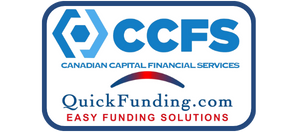Refinancing your mortgage is a popular way of reducing monthly payments and achieving long-term financial goals. Now might be a great time to consider refinancing your mortgage since interest rates are low. You may save money throughout your loan’s life if you refinance and replace your existing mortgage with a lower interest rate.
According to Perch.io, the current mortgage rates for a 5-year fixed term are 4.37%, while for a 5-year variable term, they are 5.65%. And with interest rates hovering around 2%, homeowners could save thousands of dollars by refinancing their mortgages.
Lowering your monthly mortgage payments is not the only benefit of refinancing your mortgage; You can also shorten your loan term through loan modification, convert from an adjustable-rate mortgage (ARM) to a fixed-rate mortgage, or tap into your home equity loan through a cash-out refinance.
However, before considering refinancing your mortgage, it is essential to understand the process, including the costs involved, how it affects your credit score, and the impact on your overall financial situation.
In this blog, we will explore the reasons to refinance your mortgage, why Canadians should consider refinancing their mortgages, and provide insights into how mortgage refinancing works.
Why Consider a Mortgage Refinance?
However, not everyone should refinance their mortgage because they might save tens of thousands of dollars over the loan. Here are some reasons to consider refinancing –
- Lower Interest Rates
Interest rates constantly fluctuate, and if they have dropped significantly since you first obtained your mortgage, refinancing could help you take advantage of those lower rates.
- Debt Consolidation
Refinancing your home might help you combine high-interest debt, such as credit cards or personal loans, into one manageable monthly payment.
- Access Equity
Refinancing can also allow you to access the equity in your home. Repairs, tuition, and other unexpected expenses can benefit from this.
- Change Your Mortgage Terms
Refinancing your mortgage can also allow you to change the terms of your loan. If, for instance, you have an adjustable-rate mortgage, you may benefit from the stability of a fixed-rate mortgage by making the transition.
Additionally, if you want to liquidate your mortgage faster, you can switch your refinance to a shorter term, by changing a 30-year mortgage to a 15-year mortgage.
Top 5 Reasons to Refinance Your Mortgage and Save Money
Refinancing your mortgage is one of the various ways to save money. The following list includes the top five reasons to refinance your mortgage:
- Lower Interest Rates
Refinancing a mortgage is often done to exploit current low-interest rates.
Your interest rate and monthly payment might be reduced by refinancing if rates have declined since you first got your mortgage. This can result in significant savings, especially over the long term.
- Reduce Monthly Payments
Another reason to consider refinancing your mortgage is to reduce your monthly payments. Refinancing to a new loan with an interest rate reduction or a longer term can lower your monthly payment and improve your cash flow.
Just be aware that extending the term of your loan may result in paying more in interest over the life of the loan, so carefully evaluate the pros and cons carefully.
- Shorten the Loan Term
The mortgage might be paid off sooner if the loan term is shortened by refinancing. For example, if you currently have a 30-year mortgage, refinancing to a 15-year mortgage can help you pay off your loan in half the time.
While this will likely result in higher monthly payments, it can also save you thousands of dollars in interest over the life of your loan.
- Convert an ARM (Adjustable-Rate Mortgage) to a Fixed-Rate Mortgage
Adjustable-rate mortgages (ARMs) typically come with lower interest rates initially, but they can fluctuate over time, making it difficult to budget for your monthly mortgage payment.
Refinance rates on a fixed mortgage let you lock in a predictable monthly payment and protect yourself from potential interest rate hikes in the future.
- Access Home Equity
You may use the money you get from a refinance to pay for things like renovations, debt consolidation, or even higher education if you have built enough equity in your property. With a cash-out refinance, you can borrow against the equity in your home and receive a lump sum payment at closing.
Closing costs extend to fees and expenses required to finalize a real estate transaction, which is typically paid by the buyer. These costs can include charges for loan origination, property value rates, title search, insurance, and taxes.
So, remember that tapping into your home loan means taking on more debt, so make sure it’s the right decision for your financial situation.
Key Takeaways
Obtaining a residential or commercial property mortgage may seem overwhelming, but it can be simplified with the right information and guidance. There are plenty of reasons to refinance your mortgage, but knowing how to proceed can be complicated if you don’t know where to start.
With the information given in this article and working with a reputable mortgage loan officer, potential homeowners can make informed decisions about their mortgage options and secure the best financing possible.
On that note, Quick Funding is a funding specialist firm that works with Canadian Capital Financial Services (CCFS) to help clients acquire commercial or residential mortgages. From first-time buyers to seasoned investors, Quick Funding can assist in navigating the complex world of mortgages and offer personalized and efficient service to help achieve real estate goals.









